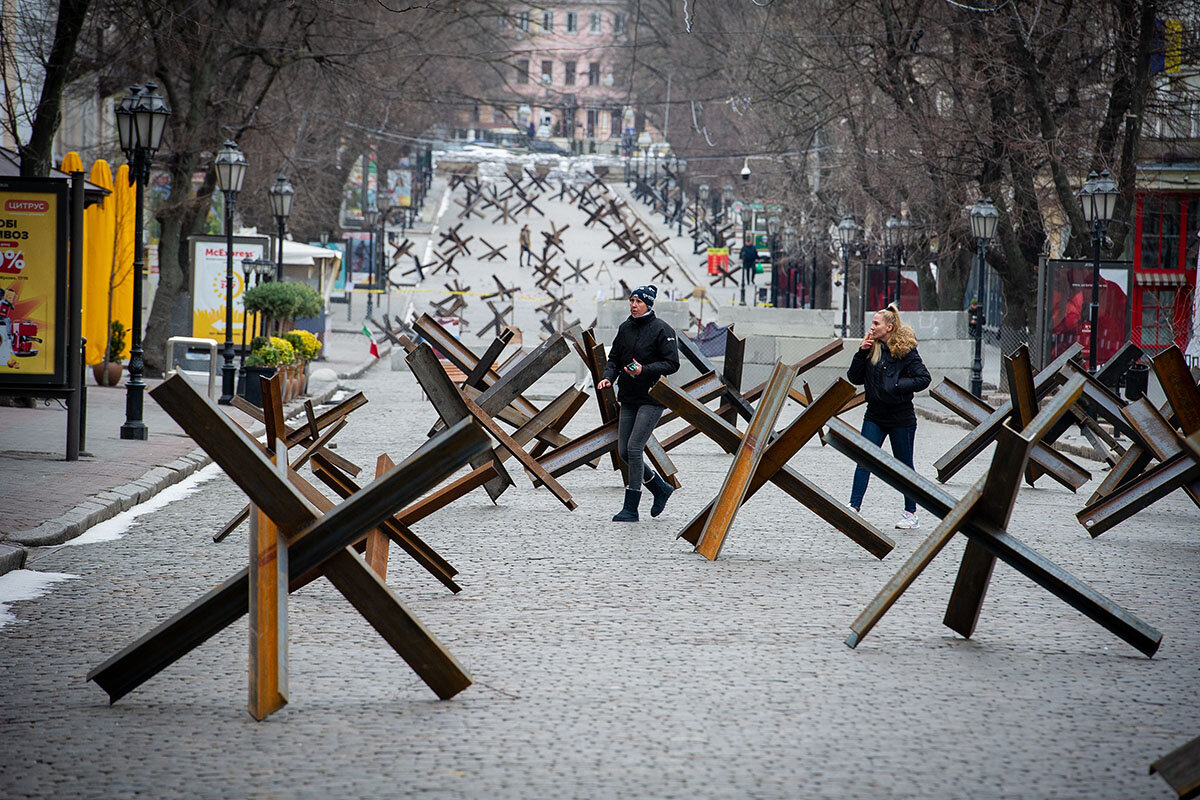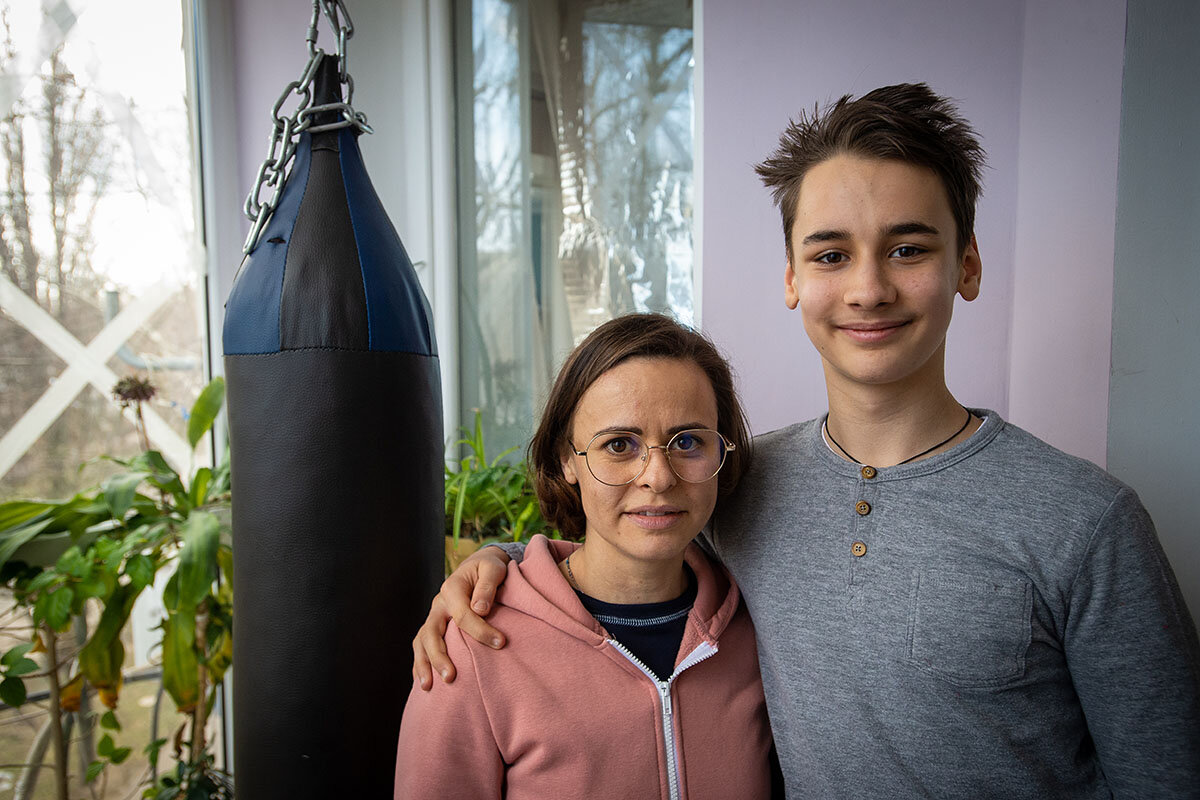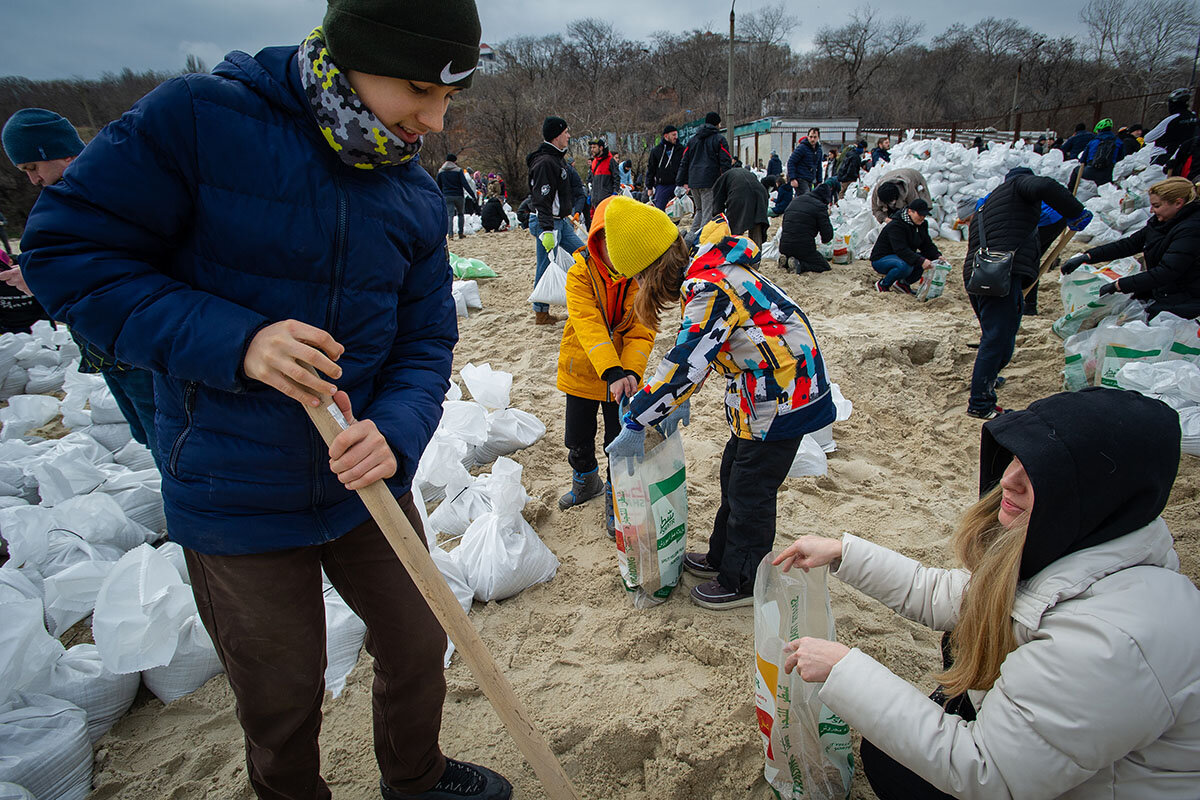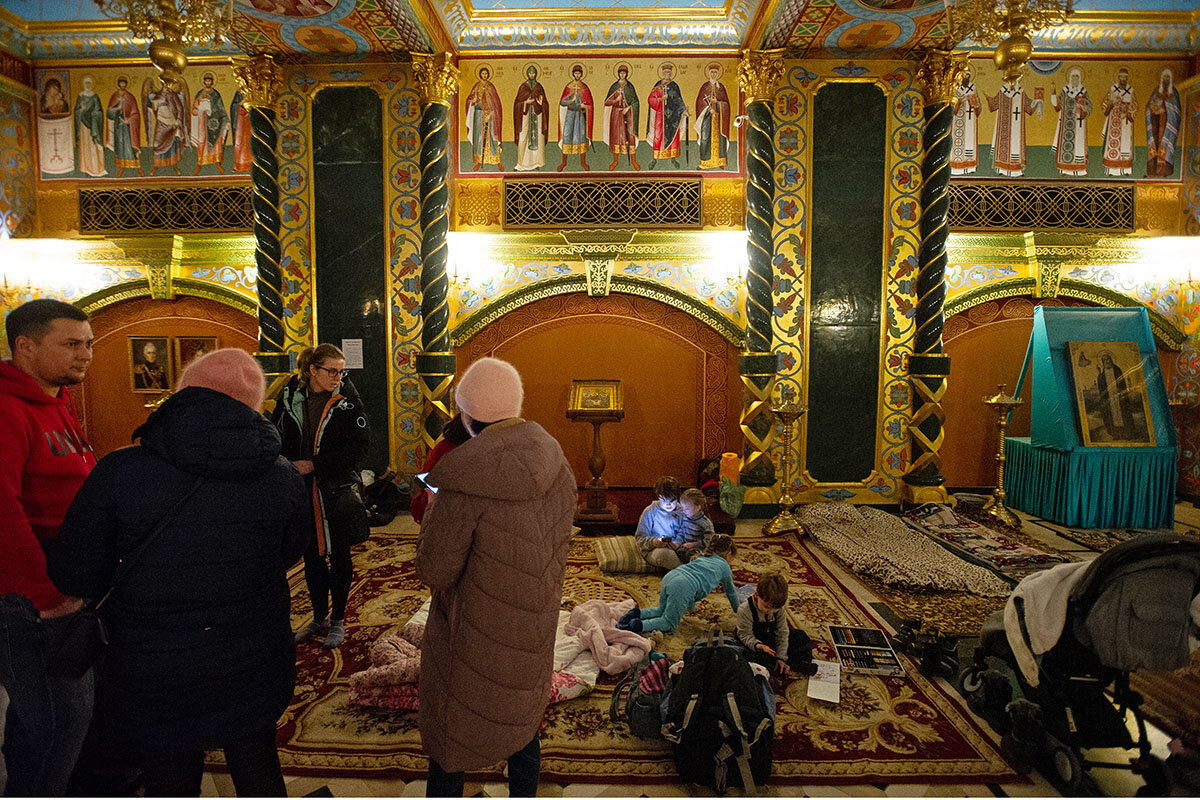Ukraine war divides families and exiles children. Why some stay.
Loading...
| ODESSA, Ukraine
For decades, the aging military hardware on display at a sprawling Soviet-era park has created a favorite playground for children, who can’t help climbing on the rows of World War II artillery pieces, or marveling at the rockets and submarine.
Officially called the Memorial of the Heroic Defense of Odessa, it was created both to teach about the horrors of war – with the aim of avoiding such violence in the future – and to celebrate Odessans’ determination to defend their city.
For the families who today have chosen to stay with their children in Ukraine, despite the uncertain furies of the Russian advance, those messages are especially poignant.
Why We Wrote This
Protecting home. Protecting family. Keeping families together. The war is forcing many Ukrainians to choose among those principles. Our reporter spoke to families in Odessa who decided to stay.
On Wednesday, a Russian flotilla with amphibious landing capabilities was reported to be heading toward this strategic Black Sea port, widely seen as the final target of the Russian southern advance.
“It’s a hard decision; you have to be Ukrainian to feel this,” says Ivan, a father who gave only his first name, as his two daughters, ages 3 and 4, play on an 85 mm gun forged in 1939.
“We will be here, because it is our motherland. We will fight. We don’t have a choice,” says Ivan, his eyes tired and forehead creased with anxiety. He has joined the Territorial Defense force, his third military deployment since 2004.
Taking his wife and children out of Ukraine would require “two big bags of money,” and there is “no sense living in a tent,” says Ivan, reeling off reasons not to be a refugee. But at the top of the list is defending the nation, as a family.
Odessa was just one of 12 places named a “Hero City” by the Soviet Union for its role in the Second World War. One carved granite slab here is dedicated to border guards, whose “bravery is a model for all generations.”
“If it’s our destiny to die here, that will be,” says Ivan, standing next to his girls’ double buggy. “Sometimes you have to make a decision.”
He waves his arm toward the relics of war, then says with a wry smile, “This should all be melted down to make bullets to use against Russia.”
Families across Ukraine have been forced to make similarly uncomfortable – often excruciating – decisions about whether to stay or to leave. Their calculations take into consideration several critical factors, from devotion to family and love of country, to the ability to control fear amid a welter of dramatic news about the conflict.
In three weeks of war, the United Nations estimates that 3 million Ukrainians have left the country – half of them children. But many more Ukrainian children remain, a result of choices by their parents, or caught by circumstances beyond their control. Men between the ages of 18 and 60 are prohibited from leaving.
Dr. Tetiana Gavryliuk knows how tough the choice can be, because, in another part of Odessa, she and her 12-year-old son, Georgii, made the decision to stay. She cites “our homeland” and “the city that I love,” as well as the presence of all her family, including parents who won’t go.
A doctor in a maternity ward – her husband, also a doctor, died from COVID-19 last year – Dr. Gavryliuk tries to rein in her panic, when hearing air raid sirens or watching news of heavy bombardment elsewhere.
Brightly colored plastic buckets filled with water sit in the hallway. Windows are crisscrossed with tape.
“I’m trying to keep sane,” says Dr. Gavryliuk, who reckons that one-third of her building’s residents have left. The pair now mostly stay with her parents in a thick-walled, 19th-century apartment building.
As a doctor, she feels obligated to remain. At her maternity hospital, all procedures can now be conducted underground. But Dr. Gavryliuk says a threshold for her and her son may be if Odessa is bombarded like some other Ukrainian cities.
“All are staying so far,” says the bespectacled doctor, whom the Monitor first encountered among scores of volunteers filling sandbags at the Odessa Yacht Club beach.
“It’s a very difficult choice,” says Georgii, in halting English. “It’s not clear what will happen.”
His mother puts her hand on his knee, to comfort him. She asks her son point-blank, “Are you scared?”
“No,” he replies. But he then clarifies a concern about “Bombs. Bombing our house. I am afraid we won’t hear the alarm and get caught up in it.”
“He is very patriotic,” beams his mother. Online classes resumed this week. Georgii has spent time making plasticine figures, building a Legos set assault rifle, and watching the History Channel’s “Forged in Fire,” in which contestants compete to manufacture bladed weapons.
“I am optimistic in my life, but this is complicated,” Dr. Gavryliuk says of her fluctuating emotions. A hopeful high point has been the city of Mykolaiv, 80 miles east of Odessa, whose defenders have blocked Russia’s westward advance for more than two weeks.
“I was happy, I felt joy” to hear of Mykolaiv’s defiance, she says. “That’s a very tender feeling, how good that is.”
But low points include frequent scenes of Russian bombing of civilians, especially the large maternity hospital struck last week in the besieged city of Mariupol.
“I feel powerless when this happens. I feel we should not have mercy for them,” the doctor says of the Russian military. “I have no words for this.”
Also buffeted by events is Kateryna Zadorozhnaya, who at the sound of every air raid siren gathers her mother and daughter, crosses the street in the city center, and descends to the deep makeshift bunker beneath the Spaso-Preobrazhensky Cathedral, a Ukrainian Orthodox church (Moscow Patriarchate).
Below ground, safely settled within an ornate gilt religious sanctuary, three families with four children keep blankets on hand for sleeping on the carpets. During a recent air raid siren, the children played with toys and on smartphones.
“Our lives have become a life of being here, or at home – we sleep in our clothes,” says Ms. Zadorozhnaya stoically. “We have everything prepared.”
“A lot of people decided to not leave,” says the mother. The siren ends, and she starts packing up a backpack and putting snow boots on the children, for the long walk back up the stairs. “It’s my country. We live each day as it comes,” she says.
That stoicism has limits, though. Back at the memorial military park, Renata Badiul says she is staying for her family.
“I can go, but I don’t want to,” says Ms. Badiul, with the hulking Soviet Malyutka (Little One) submarine behind her. Her 11-year-old brother, Arsen, is “a person who is very nervous,” she says, but they can’t hide the news from him – or that so many of his friends have gone.
“Goodbye, my friends!” Arsen says with a faux comical wave, in a bid to lighten the mood.
“He knows everything,” says Ms. Badiul. She adds that, if she were a man with a family, she “would not ask; I would make them go abroad. You don’t know what would happen to them.”
Later, beside the hull of the same submarine, grandfather Oleg pushes a buggy with his 13-month-old granddaughter, Alisa, and brushes off uncertainties.
“If we were afraid, we would leave the city a long time ago,” he says, looking down at the child wrapped in a thick yellow jacket, as darkness and cold descend. Asked if Ukraine will achieve victory, he answers without hesitation, “Of course.”
“There is a Russian saying,” he adds. “If you are afraid of wolves, you should not be coming to the forest.”












